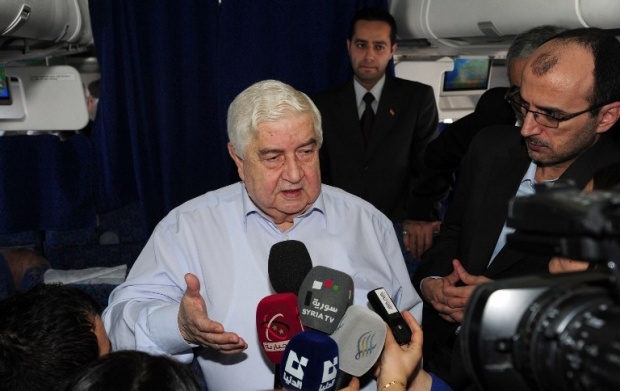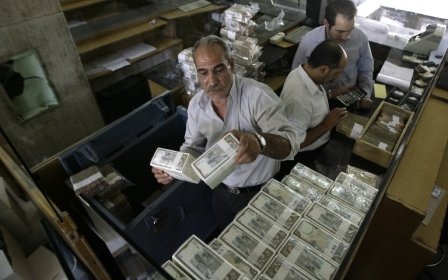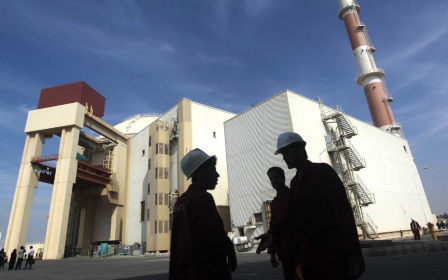Iran deal may strengthen Damascus, says Syria's foreign minister

An international agreement on Iran's nuclear programme will not change Tehran's staunch support for the Syrian government and may even strengthen Damascus, Syria's foreign minister said on Friday.
Speaking at a conference in Damascus on "confronting terrorism", Walid Muallem also said it was too early for another UN-led peace conference for his war torn country.
Muallem's comments come just days before UN Special Envoy to Syria Staffan de Mistura is scheduled to brief the UN Security Council with his new Syria peace plan after the failure of his Aleppo freeze strategy to gain traction.
"We think that going to Geneva 3 is premature unless the Syrians address their issues among themselves," Reuters reported Muallem as saying during the conference.
The foreign minister also said that those who hope to persuade Iran to abandon Syria's government following the nuclear deal will be disappointed.
"There are those, led by the United States, who think that this agreement will enable the West to influence Iran's positions on the Syrian crisis," Muallem said, dismissing that as "delusional".
"Iran's attitudes on the crisis in Syria have not changed," the minister said. Tehran "provided all kinds of support to the Syrian people in their struggle against terrorism before the nuclear deal, and during it, and will continue to do so after it."
In fact, he said, the agreement could end up strengthening Syria.
"Iran has entered the world stage through the widest doors, and the more powerful our ally is, the more powerful we are."
The nuclear deal between Iran and six powers led by the US has led to speculation that broader cooperation on regional issues might now be possible.
But Iran's supreme leader Ayatollah Ali Khamenei has already insisted Tehran will continue to oppose "arrogant" US policies. "US policies in the region differ from Iran's by 180 degrees," he said last week.
Tehran is a longstanding ally of President Bashar al-Assad's embattled government in Damascus. The country has remained a strong supporter throughout the uprising against him, providing money, weapons and military advisers which many analysts have suggested hold increasingly critical, top-level roles in the Syrian government.
In May, Syria secured a new $1bn credit line from Iran, the third since 2013.
In a recent column for MEE, Jihad Yazigi, editor-in-chief of the Syria Report, an economic weekly, suggested that Iran is likely to seek to obtain real estate assets and other state properties in exchange for its latest credit offer.
Miraculous alliance?
Also on Friday, Muallem thanked another key government ally, Russian President Vladimir Putin, for suggesting the creation of a new regional and international alliance to fight "terrorism".
Damascus considers all those seeking the ousting of Assad as "terrorists" and is not part of the US-led coalition fighting the Islamic State (IS) group with air strikes in Syria.
Muallem said it would take "a miracle" to create a new regional anti-terrorism alliance in the short-term.
"But in the medium-term, the security imperatives imposed by the reality of the spread of terrorism ... and it rebounding against its supporters, will require neighbouring countries to work with Syria to create such an alliance."
Syria accuses several of its neighbours, including Turkey and Jordan, of sponsoring "terrorism" in the country.
It dismisses the efforts of the US-led coalition, accusing its members of fomenting militancy in Syria.
Muallem made no comments about overnight air strikes carried out by Turkey on Islamic State positions in northern Syria for the first time.
New MEE newsletter: Jerusalem Dispatch
Sign up to get the latest insights and analysis on Israel-Palestine, alongside Turkey Unpacked and other MEE newsletters
Middle East Eye delivers independent and unrivalled coverage and analysis of the Middle East, North Africa and beyond. To learn more about republishing this content and the associated fees, please fill out this form. More about MEE can be found here.




